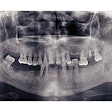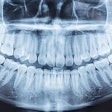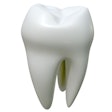A $75,000 award presented Wednesday at the International Association for Dental Research (IADR) meeting in San Diego will advance a xerostomia treatment study already under way at Georgia Health Sciences University (GHSU) College of Dental Medicine.
The clinical trial is evaluating an all-natural green tea lozenge for relieving xerostomia. The initial part of the study was funded by a $50,000 grant from the Georgia Research Alliance. The award presented on Wednesday was sponsored by the IADR and GlaxoSmithKline.
Through previous animal studies and human sample testing, GHSU researchers found that xerostomia involves salivary gland inflammation, reduced antioxidants, and elevated markers for abnormal growth and DNA damage caused by free radicals. Polyphenols -- powerful antioxidants in green tea -- reduce that damage to the salivary gland, the GHSU researchers noted.
"With green tea polyphenols, we have an agent that's helping to correct the salivary gland's abnormal behavior," said Douglas Dickinson, PhD, an associate professor in the department of oral biology and co-investigator, in a university press release.
The team formulated an all-natural lozenge containing green tea polyphenols, xylitol, and jaborandi leaf extract, a plant used in South and Central America to promote saliva production. The lozenge offers a slow, extended release only in the mouth and avoids the systemic effects prescription dry-mouth medications can cause, which can include diarrhea and excessive sweating, said Scott DeRossi, DMD, chairman of the department of oral health and diagnostic sciences and principal investigator on the study.
During the eight-week trial, the researchers will follow 60 patients, with half taking the lozenge and half taking a placebo. The four daily doses of the lozenge taken during the trial are equivalent to drinking four or five cups of green tea, which benefits overall health, the researchers said.

















